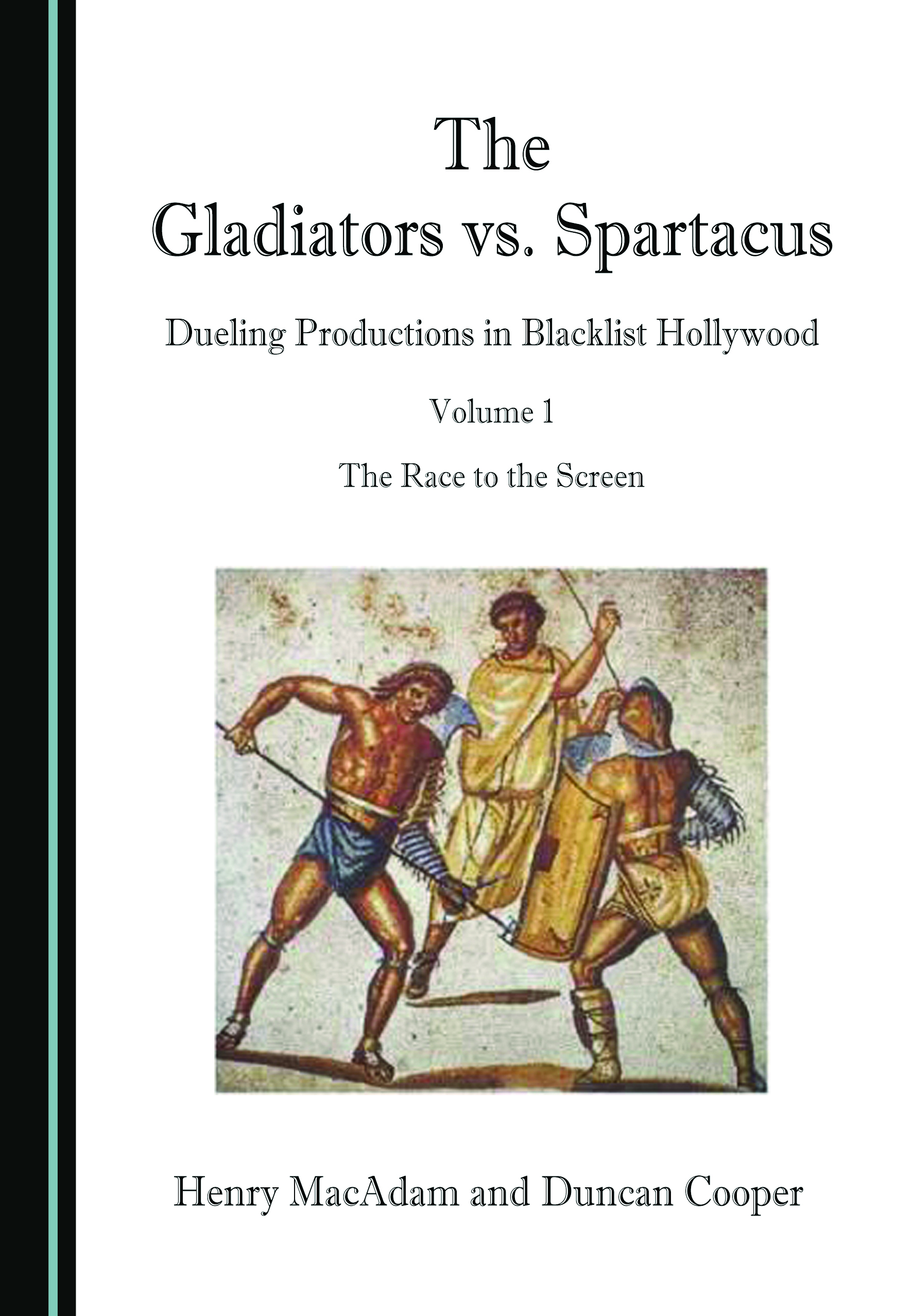The Gladiators vs. Spartacus, Volume 1: Dueling Productions in Blacklist Hollywood
Using previously unpublished correspondence and personal journal entries from screenwriter Abraham Polonsky, neglected notices in Variety and other Hollywood trade publications, and a wide range of published sources, this narrative backstory of rival movie productions of The Gladiators vs Spartacus documents that intense competition with greater precision and clarity than any other existing account. The key role that this little-known chapter of Hollywood's blacklist history played, in connection with Dalton Trumbo's successful effort to win screen credit for Spartacus, is now for the first time available to film historians and lay readers. A companion study, Volume 2, is devoted to Abraham Polonsky’s rediscovered screenplay.
Henry MacAdam earned a BA and MA in Ancient History/Archaeology from the American University of Beirut (AUB), Lebanon, and a PhD in those disciplines at the University of Manchester, UK. He taught undergraduate classes and graduate seminars in those subjects at the AUB, and was a Visitor/Researcher at the Institute for Advanced Study in Princeton and Associate Archivist at Princeton Theological Seminary. He then taught Western Civilization at Mercer County Community College and Humanities and Liberal Arts at DeVry University (both in New Jersey) until his retirement in 2011. For the past 40 years, he has published in the field of ancient studies. The history of blacklist Hollywood has been a research interest for the past decade.
Duncan Cooper was formerly a consulting actuary in New York and later a federal government pension actuary in Washington, DC. After viewing Spartacus a year following its release in 1960, and later reading the Howard Fast novel on which it was based, he developed a lifelong research interest in both the actual history of the slave war and the politically motivated censorship of the film by Universal Studios. A published film historian since 1975, in 1990-91 he participated in the restoration of Spartacus. He is the author of a half dozen articles about the production of Spartacus (including its censorship by Universal Studios), and on the historical events upon which it is based. He is currently completing an article on an alternative chronology of the Third Servile (Spartacus) War.
“Perhaps appropriately, this is quite an epic undertaking. There are two volumes that together stretch (with supplementary material and bibliographies) to over 1,000 pages. Anyone interested in the dramaturgy of the Spartacus revolt in Roman history, and in novels and films that represent those events, will find much that is valuable. Central to the project are accounts of two intended Hollywood productions of the late 1950s, both of them written and adapted by blacklisted screenwriters from significant novels on the events, and legends, of Spartacus and the slave revolt against the Roman Empire. […] [For] anyone interested in the problematic history, in issues of adaptation, and in Hollywood processes at the time, when the blacklist was at last being challenged, there is material of great interest. There is also good material on the role of ‘independent’ production companies and key agencies and studios (and their moguls and executives) in the late fifties. Central to the whole publishing project is the figure of Abraham Polonsky, and the work brings to the public domain one of the writer’s unpublished screenplays, exploring it in masterly fashion in historical and literary terms. […] It is good to have the screenplay itself (unfinished as it may be), and the extracts from Polonsky’s 1958 journals are also of particular value, illuminating some of his working methods, key influences (including Henry Adams), and the experience of the blacklist. There is also good treatment of his ‘Triumph of Alexander the Great’ teleplay. (The journal entries were clearly very difficult to decipher and transcribe, and the authors are to be congratulated for their efforts). [This] is a major achievement, indicating impressive scholarship and providing a valuable collection of research. The publishers have done an excellent job in presenting this work.”
Brian Neve
Honorary Fellow, University of Bath, UK
Buy This Book























